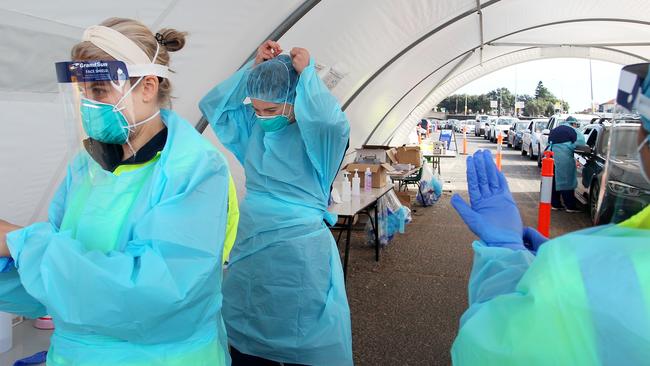Lawyers tip significant financial pain for insurers as test case looms
An upcoming test case could be financially painful for insurers according to legal experts, who say insurers stand on shaky ground.

Insurers are likely to face large financial payouts if an upcoming court case over business interruption insurance moves ahead, legal experts say.
The Australian Financial Complaints Authority is expected to bring forward a case on the matter in coming weeks that would see a legal test of pandemic carve-outs in policies offered by major insurers.
The battleground is likely to centre around the wording of many business interruption policies that reference the 1908 quarantine act, according to lawyers closely involved in cases.
Josh Mennen, Maurice Blackburn’s principal lawyer in superannuation and insurance practice, said the insurance industry had “caused the issue for itself” by failing to update or properly draft contracts that reflected current legislation.
“The main battleground, which is common across many of these insurance products, is that they exclude claims for quarantinable diseases under the 1908 Quarantine Act. The only problem is the Quarantine Act was repealed and replaced with the Biosecurity Act, which does not have a mechanism in it to declare something a quarantinable disease,” Mr Mennen said.
“We’ve done an analysis of the business interruption products and it looks like the majority of the large Australian insurers are exposed on this issue.”
Payouts for business interruption insurance can be huge. This year’s Wimbledon tennis tournament, which held pandemic coverage as part of its business interruption insurance policy, was paid $US141m ($196.5m) after the tournament was cancelled due to the coronavirus.
Analysts at Macquarie have estimated insurers could face a $535m loss in payouts for business-interruption insurance if the case went against them.
Mr Mennen, who offered to act for any consumer in the AFCA test case, said the courts would need to look at public interest around any findings. “I think the insurance industry is going to struggle to persuade a court that it is in the public interest to deny small business owners indemnification for their insurance products,” he said.
“If this goes the wrong way for the insurance industry, I don’t think it’s overstating it’ll be one of the biggest drafting blunders in history.”
But Mr Mennen said he was unsure whether AFCA was intending to see the case interpreted under the law generally or under its own rules, which might see policyholders paid out a proportion of their coverage.
“Would it be reasonable for a proportion of a benefit to be paid? AFCA can make that determination,” he said.
“That’s the sort of approach that is open to AFCA as a non-judicial decision-maker.”
The last time there was such a high-stakes test case was following the 2011 Queensland floods that hit Ipswich and Brisbane and resulted in many insurers rejecting claims, before a court found against them.
The latest Australian case comes as courts in Britain are set to wrap up a test case on business-interruption insurance brought by the country’s insurance regulator on Thursday.
The Financial Conduct Authority is testing claims regarding causation of policies in a case that may leave Australian insurer QBE on the hook for $200m.
Berrill & Watson Lawyers principal John Berrill said although the upcoming Australian test was important, it would not be binding and unlikely to stem any legal action. “We’ve got cases that will be issued in the Victorian Supreme Court and they’re not bound by the decision of the Federal or NSW Supreme Court,” he said.
However, Mr Berrill said the outcome of the Australian case could have implications beyond pandemics.
“It’s going to impact on other insurance such as bushfires where there are orders made to evacuate or damage caused because people don’t come to you or your suppliers and therefore you’re cut out and you suffer loss,” he said.







To join the conversation, please log in. Don't have an account? Register
Join the conversation, you are commenting as Logout